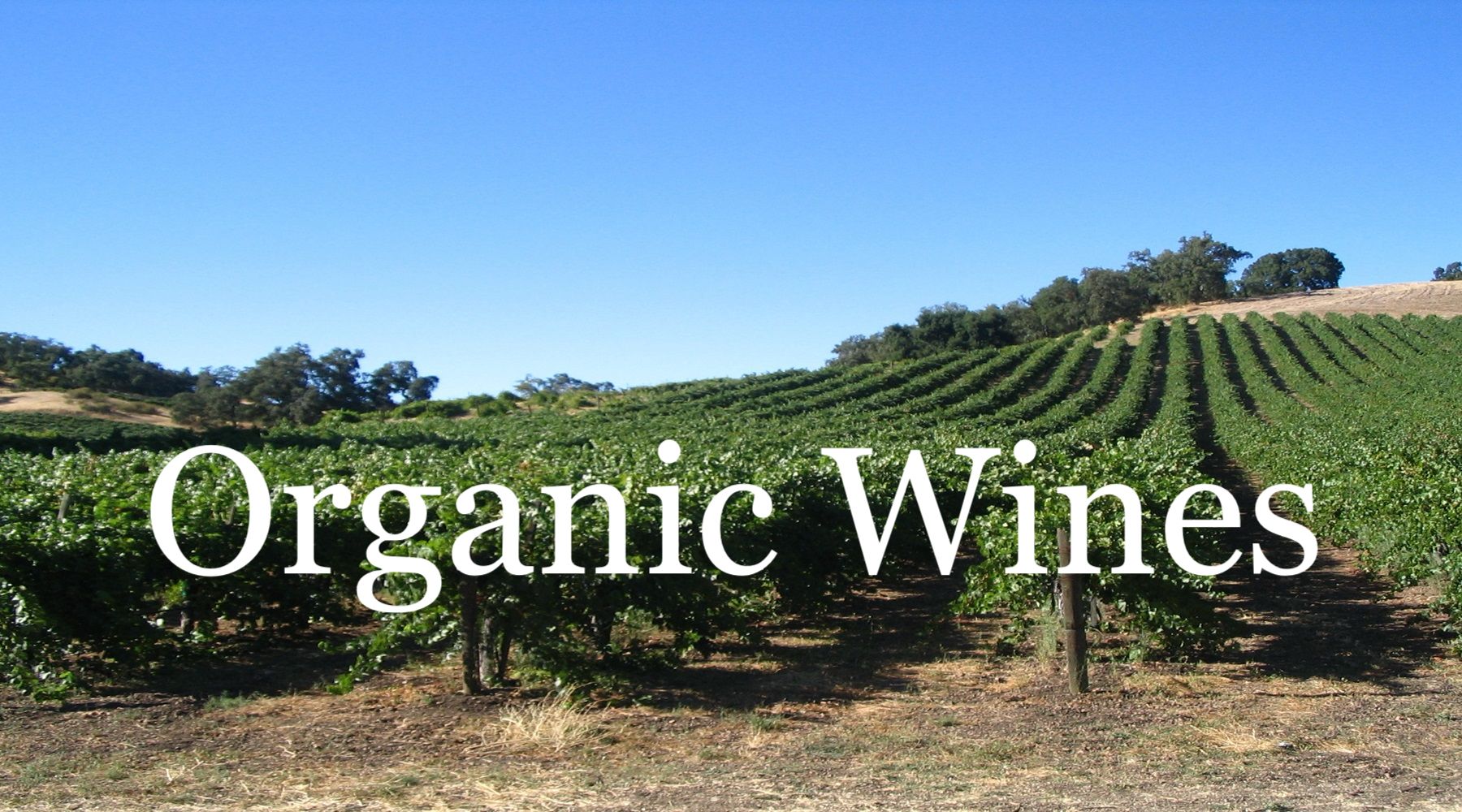
When choosing a bottle of wine, you’ve probably noticed the growing popularity of organic options. Promising fewer chemicals and a more natural production process, organic wine has sparked curiosity among health-conscious drinkers. But does it live up to the hype, and is it better for you?
Organic wine isn’t just about skipping pesticides; it’s also about embracing sustainable practices and reducing additives. Many believe these factors make it a healthier choice, but the question remains—how does it compare to conventional wine in terms of health benefits and taste?
Understanding what sets organic wine apart can help you decide if it’s worth the switch.
What Is Organic Wine?
Organic wine is made from grapes grown without synthetic pesticides, herbicides, or chemical fertilizers. It emphasizes natural cultivation and minimal intervention during the winemaking process.
Understanding Organic Certification
Organic certification ensures the wine complies with strict agricultural and winemaking standards. In the U.S., wines labeled "organic" must meet USDA Organic standards. These include using grapes grown without synthetic inputs, maintaining soil health through crop rotation and composting, and prohibiting genetically modified organisms (GMOs).
In addition to farming methods, organic certification restricts winemaking additives. For example, certified organic wines in the U.S. cannot contain added sulfites, while in the EU, limited sulfite use is permitted for stabilization. Verification by accredited certifying agencies confirms compliance with these requirements.
How Organic Wine Differs From Conventional Wine
Organic wine avoids synthetic chemicals, while conventional wine often uses pesticides and chemical fertilizers during grape cultivation. This reduces potential chemical residues in organic wine.
Organic winemaking also minimizes additives. Common conventional additives like stabilizers, flavoring agents, and sulfites are either restricted or entirely eliminated in organic production. As a result, organic wine presents a purer, less-manipulated product.
Sustainability practices are integrated into organic wine production. These include maintaining biodiversity, promoting soil health, and reducing environmental impact, which are often less prioritized in conventional winemaking.
Health Benefits Of Organic Wine
Organic wine offers potential health advantages due to its natural production methods. Its focus on reducing synthetic inputs and additives can directly benefit your well-being.
Lower Chemical Exposure
Organic wine eliminates the use of synthetic pesticides, herbicides, and fungicides during grape cultivation. Without chemical residues, your body avoids exposure to potentially harmful substances found in conventional wine.
The Environmental Working Group (EWG) highlights that certain pesticide residues could pose long-term health risks, making organic wine a safer option.
Fewer Additives And Preservatives
Organic wine includes minimal artificial sulfites and other chemical additives. Sulfites, used as preservatives in conventional wine, can trigger allergic reactions or headaches in sensitive individuals. By limiting these substances, organic wine reduces risks associated with allergies or chemical sensitivities.
This makes it a cleaner option for your body compared to wine with high preservative levels.
Potential Nutritional Advantages
Organic wine retains more antioxidants like polyphenols due to its minimal intervention during production. Polyphenols, including resveratrol, are linked to heart health and anti-inflammatory properties.
Studies in the Journal of Agricultural and Food Chemistry reveal that organic farming methods may preserve higher nutrient levels in grapes, potentially increasing the nutritional benefits of organic wine.
Environmental Impact Of Organic Wine
Organic wine production contributes positively to the environment by prioritizing eco-friendly practices and reducing pollution. It embraces sustainable methods that enhance biodiversity and soil health, creating long-term benefits for ecosystems.
Sustainable Farming Practices
Organic vineyards use farming methods that promote ecosystem balance and reduce the reliance on synthetic inputs. Crop rotation, cover cropping, and composting improve soil fertility and structure. For example, planting cover crops like legumes adds nitrogen naturally, eliminating the need for chemical fertilizers.
Pest management relies on natural predators and biological controls instead of harmful pesticides. This approach supports local wildlife and reduces damage to surrounding habitats, making organic vineyards more sustainable than conventional ones.
Reduced Soil And Water Contamination
The absence of synthetic pesticides and herbicides minimizes contamination of soil and water sources in organic wine production. Chemicals from conventional agriculture often leach into groundwater or cause soil degradation. Organic farming avoids these pollutants, helping preserve water quality and maintain the soil's natural microbial activity.
Cleaner water runoff from organic vineyards also benefits nearby rivers and aquatic ecosystems. By focusing on natural treatments, organic wine producers protect the land and reduce the long-term environmental footprint of their vineyards.
That’s what Organic Wines is proud of. Sustainability is at the heart of everything we do. From vineyard to bottle, we are dedicated to reducing our environmental footprint while delivering wines that are as pure as nature intended.
Taste And Quality Factors
Organic wine offers distinct taste profiles that stem from natural cultivation and minimal intervention in the winemaking process. These factors influence both flavor variability and perceived quality among consumers.
Flavor Variability In Organic Wines
Organic wines reflect the characteristics of their terroir, as they avoid synthetic pesticides and artificial additives during production. This natural approach often results in more pronounced, unique flavors compared to conventional wines.
For example, organic red wines may exhibit enhanced fruit aromas and earthy undertones, while organic white wines can deliver brighter, fresher acidity.
However, natural variations in climate, soil, and grape quality directly impact taste consistency, leading to greater variability across vintages in organic wine.
Minimal use of sulfites in organic wine may also affect flavors, as sulfites typically preserve wine stability. Low sulfite wines might develop subtle changes in taste over time, offering a more dynamic drinking experience for some but being less predictable for others.
Consumer Perceptions Of Quality
Perceptions of organic wine quality often align with its natural production ethos. Many consumers associate organic wines with authenticity and craftsmanship due to reduced chemical intervention and eco-friendly practices.
Taste tests sometimes reveal that individuals perceive organic wines as fresher or more robust, potentially linked to the organic methods preserving grape integrity.
Although some people expect organic wine to lack refinement, advancements in organic winemaking have challenged this notion. Awards and critical acclaim for organic labels have validated their quality, narrowing the perceived gap between organic and conventional options.
However, the variable taste profiles and limited use of preservatives may still make organic wines polarizing for those unfamiliar with their distinct qualities.
Is Organic Wine Truly Better For You?
Organic wine offers health-conscious benefits, eco-friendly practices, and unique flavors, but it's essential to consider scientific evidence and personal preferences when determining its value. This section examines research and how organic wine balances health, taste, and cost.
Scientific Studies And Evidence
Scientific studies suggest that organic wine may reduce exposure to harmful residues and enhance certain nutritional properties. Research shows that conventional wines can contain trace amounts of synthetic pesticides, whereas organic wines eliminate this risk by adhering to organic farming standards.
A 2018 study published in "Food Chemistry" found that organic wines retain higher levels of polyphenols, antioxidants associated with cardiovascular health and anti-inflammatory effects, due to minimal chemical interference during cultivation.
While organic wine avoids synthetic sulfites, studies indicate the natural sulfites it contains still act as preservatives, reducing the chances of spoilage. Evidence also highlights fewer additives and stabilizers in organic wine, beneficial for individuals sensitive to artificial preservatives.
Although results vary, analyses show that organic wines often surpass conventional wines in purity and may provide modest health advantages when consumed in moderation.
Balancing Health, Taste, And Cost
Organic wine balances its potential health benefits with factors like taste variability and price. The absence of synthetic pesticides and fewer additives supports a cleaner product, appealing to those prioritizing health. However, organic wines may cost 10-30% more than conventional wines due to sustainable farming techniques and certification expenses.
While this increases environmental and personal health value, it raises budget considerations.
Organic wine’s taste often reflects its natural winemaking methods, delivering diverse and pronounced flavors. This unfiltered approach contributes to an authentic but variable drinking experience. If you're willing to invest in quality and appreciate distinct natural flavors, organic wine becomes an appealing choice.
For those content with predictable taste profiles and lower costs, conventional options might remain preferable.
Conclusion
Choosing organic wine comes down to your priorities and preferences. If you value natural production methods, reduced chemical exposure, and eco-friendly practices, organic wine offers clear advantages. Its unique flavors and craftsmanship can also enhance your wine-drinking experience, though taste variability might take some getting used to.
While organic wine may cost more, its potential health benefits and sustainability make it a worthwhile investment for many. Whether you're drawn to its purity, environmental impact, or distinct taste, organic wine provides an option that aligns with a more mindful and conscious lifestyle.
That’s what Organic Wines is all about—offering high-quality, sustainably crafted wines that let you enjoy every sip with confidence, knowing you're making a choice that's better for you.
Order high-quality organic wines and experience the difference for yourself!
Frequently Asked Questions
What is organic wine?
Organic wine is made from grapes grown without synthetic pesticides, herbicides, or chemical fertilizers. It involves minimal intervention during winemaking and complies with strict organic certification standards, which prohibit GMOs and limit additives like sulfites.
How is organic wine different from conventional wine?
Organic wine minimizes the use of chemicals and additives, focusing on natural production methods. Conventional wine often uses synthetic pesticides and more preservatives. Organic wine also typically incorporates sustainable farming practices that enhance soil and environmental health.
Does organic wine taste different?
Yes, organic wine often has a distinct taste profile due to natural cultivation and minimal intervention. It reflects the terroir more prominently, resulting in varied and unique flavors across vintages compared to the more consistent taste of conventional wine.
Is organic wine healthier than conventional wine?
Organic wine eliminates synthetic pesticides and has fewer additives, potentially reducing chemical exposure. It may also retain higher levels of antioxidants, like polyphenols, which are linked to health benefits such as improved heart health and reduced inflammation.
Why is organic wine more expensive?
Organic wine production involves sustainable farming practices, which are labor-intensive and costlier than conventional methods. Limited chemical use and organic certifications also contribute to the higher production costs, often resulting in a 10-30% price increase.
Does organic wine contain sulfites?
Yes, organic wine contains natural sulfites, which occur during fermentation. However, the use of synthetic sulfites is restricted, making organic wine a better option for those sensitive to preservatives.
What are the environmental benefits of organic wine?
Organic wine production promotes biodiversity, reduces soil and water contamination, and enhances soil health through sustainable practices like crop rotation and composting. It significantly lowers the environmental footprint compared to conventional winemaking.
Can organic wine reduce allergic reactions?
Organic wine typically has fewer additives and synthetic ingredients, which may help reduce allergic reactions or sensitivities in some individuals. However, those sensitive to natural sulfites should still exercise caution.
Does organic wine have more nutritional value?
Organic wine may contain higher levels of antioxidants, such as polyphenols, due to its natural production process. These compounds are associated with heart health and anti-inflammatory properties, potentially offering more nutritional benefits than conventional wine.
Is organic wine worth the price?
Organic wine can be a worthwhile choice for those who value eco-friendly practices, natural flavors, and health-conscious benefits. However, conventional wine may be preferred for its lower cost and predictable taste. It comes down to personal priorities and preferences.
